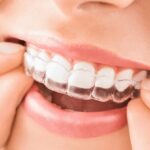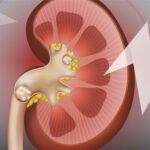Details on drug detoxification programmes that everyone should know.
One way to fast is to do a 24-hour detox. Those struggling with substance abuse might find the safety and solace they need at drug rehab los angeles centre. Every patient is given individualised care from doctors and therapists who are on call 24/7.
Education is the first stage in addiction treatment methods. People need to be educated on the risks associated with drug use. If people recognise the warning symptoms of addiction, they can get help. Drug addicts in recovery must understand that the process of detoxification should not be uncomfortable. It is planned to allow for as little relapse as feasible.
Because the symptoms of drug dependence can be similar to those of other addiction problems, such depression or anxiety, it is imperative that anyone seeking treatment at a drug rehab be clear of any mental health challenges. Patients suffering from severe depression may realise that their medications no longer work for them or that they have exhausted their reserves of coping mechanisms. Therapy and counselling can help patients cope with feelings of melancholy and worry while they are receiving treatment.
When entering a drug detox programme, anxiety is another common problem. Stress and nervousness are common results of drug withdrawal. Family members can help by keeping an eye on the sufferer around the clock. As a last resort, they should advise the patient on how to relax during the detox phase. Drug rehabilitation centres are excellent places to learn or brush up on relaxation techniques like yoga, meditation, and deep breathing. Many physicians who rely on pharmaceutical interventions stress the importance of their patients developing healthy interpersonal skills to complement the medical care they get.
After detox is over, the patient will spend time both in and out of the hospital. When a patient is brought to a hospital, most facilities strictly limit the total amount of medication they can take. During this time, patients are under frequent and intensive monitoring.
The majority of drug detox centres that offer outpatient treatment permit patients to continue taking low doses of non-prescription, over-the-counter, or herbal medications during treatment. Patients are not permitted to consume alcohol while they are staying at the medical facility. Those in recovery from addiction who are not residing in a residential treatment centre should restrict the number of alcoholic beverages they consume each day to no more than two.
To stop this from happening again, there are many different preventative steps that can be taken. A number of drug rehabilitation facilities use a procedure called Relapse Prevention Treatment (RPT), which aims to aid recovering addicts in remaining clean. This approach to treating addicts who have experienced relapse helps patients develop the resiliency they need to avoid future episodes of drug use.
People who are battling drug addiction have access to a wide variety of helpful tools, and traditional counselling is just one of them. Individuals who are in the process of recovering from substance misuse are typically offered services in rehabilitation centres that have an emphasis on preventing relapse. These services may include therapy, support with housekeeping, and case management.







